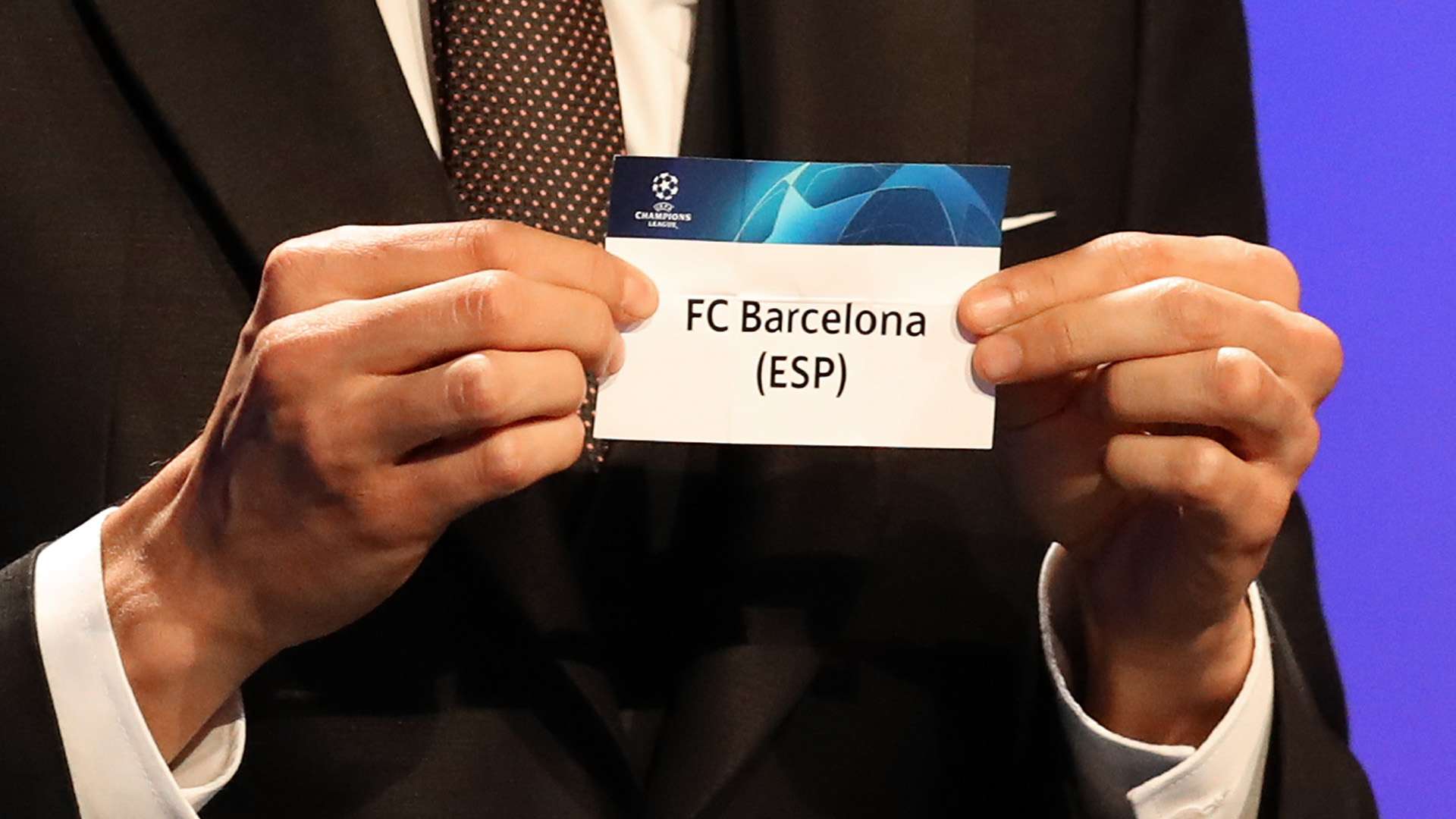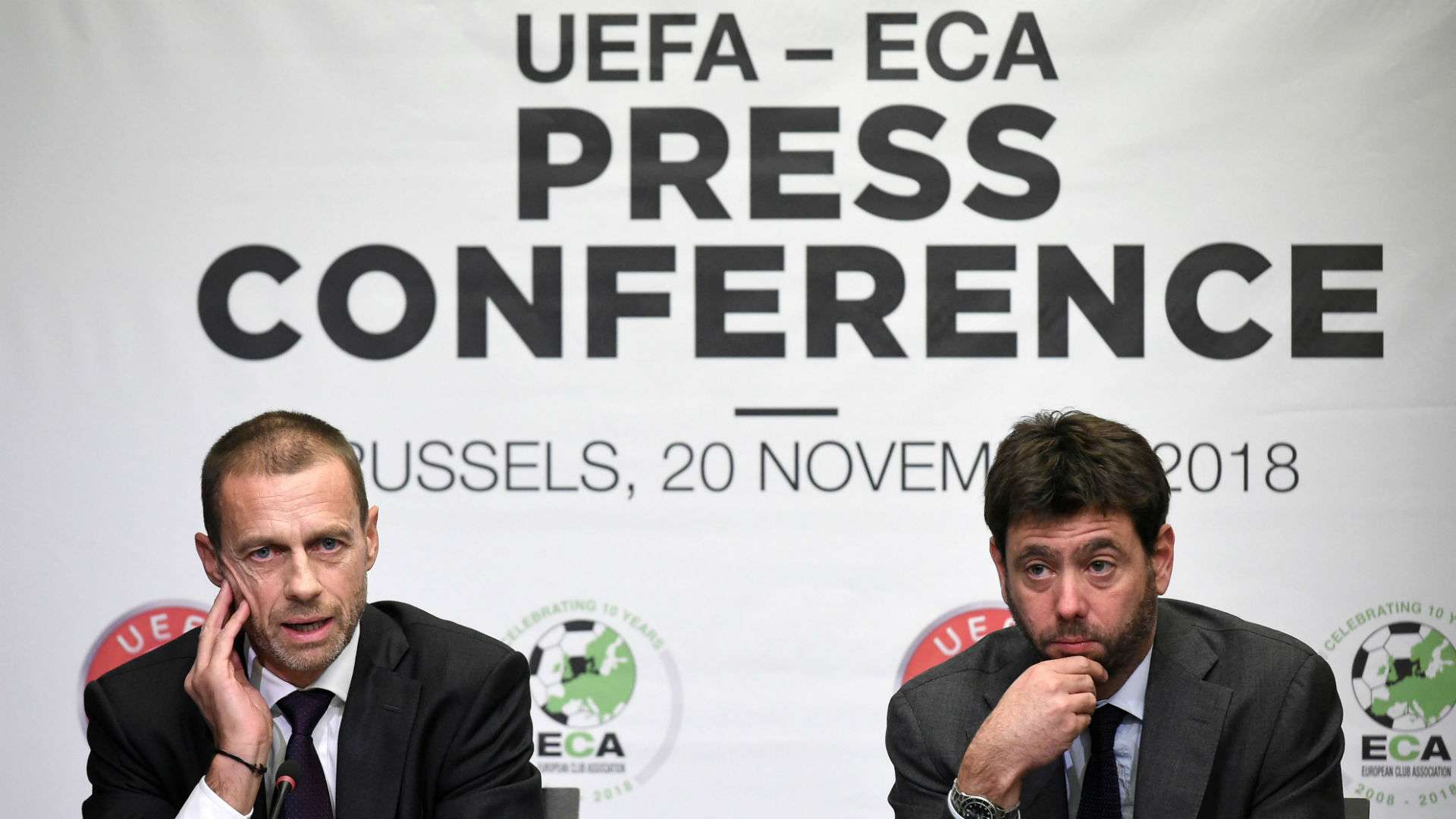The Champions League has undergone a number of format changes since 1955, evolving as a competition in terms of rounds and composition.
From the simple knockout rounds of the old European Cup to the group stage-knockouts combination of the modern-day tournament, it has been altered by UEFA in response to the changing landscape of the game.
Discussions between some of the continent's top clubs - represented by the ECA - and UEFA regarding potential new tweaks have been ongoing in recent years.
So what would the Champions League expansion entail? Goal takes a look...
What are the proposed Champions League format changes?
UEFA is reportedly considering the expansion of the Champions League by four extra match dates each season, which would see the two finalists play 17 games instead of 13.
It remains unclear, however, how exactly those four match dates would be incoporated into the format, but the idea is to introduce it for the 2024-25 season.
Reports have suggested that a number of possibilities are being explored, such as eight groups of six teams instead of eight groups of four teams, bringing the number of teams in the group stage to 48 - an expansion of 16 participants.
The introduction of a second group stage - two groups of four teams, with the top two teams in each group advancing to the semi-finals - has also been mooted.
 Getty Images
Getty Images
Of course, extra games in continental competition would add to the fixture load of successful clubs who are managing already congested schedules.
Understandably, that is not a popular idea. Pep Guardiola and Jurgen Klopp, for example, have been vocal critics of the demands placed on their teams across as many as five competitions.
"I think the solution is you have to make a year of 400 days, that is a solution, 400 or 500, more or less," Guardiola remarked sarcastically when asked about the idea of expanding the Champions League.
"After that we can book another competition. Maybe UEFA or FIFA can talk about it. We have few days a year, that's the problem."
In England, it has been widely reported that any expansion to the Champions League would have a knock-on effect on the Carabao Cup in particular.
Teams competing in an expanded Champions League would, it is argued, not compete in the domestic cup competition - a competition which comes behind the FA Cup in terms of prestige and prize money.
 Getty Images
Getty Images
Another proposal is to reward the four semi-finalists with a guaranteed place in the following season's tournament, which would be a relatively radical move.
UEFA has already made similar changes in this respect, granting the Champions League and Europa League winners a place in the following season's Champions League.
Head of the ECA, Andrea Agnelli, believes that such a change would have a positive effect for clubs from weaker leagues, such as those in Scotland, the Netherlands and Poland.
"It's right that if you perform in the international system, you stay in the international system," Agnelli said at a Leaders Sports Business Summit in 2019.
"It would be great for clubs like Ajax, Celtic, (Legia) Warsaw knowing they can stay in Europe and not have to qualify via domestic system."
What is the ECA?
The European Club Association (ECA) is a representative body serving the interests of over 230 European clubs. The ECA was formed in 2008 and is officially recognised by UEFA.
There were 16 founding members of the ECA. They were: Ajax (Netherlands), Anderlecht (Belgium), Barcelona (Spain), Bayern Munich (Germany), Birkirkara (Malta), Chelsea (England), Copenhagen (Denmark), Dinamo Zagreb (Croatia), Juventus (Italy), Lyon (France), Manchested United (England), AC Milan (Italy), Olympiacos (Greece), Porto (Portugal), Rangers (Scotland) and Real Madrid (Spain).
The ECA's mission statement says that it exists "to protect and promote European club football" and that the aim of the group "is to create a new, more democratic governance model that truly reflects the key role of the clubs."
 Getty Images
Getty Images
How has the Champions League changed in the past?
The Champions League or European Cup has remained largely the same since 2003, but the format has been changed on a number of occasions.
From the tournament's inception in 1955 until 1967 it featured just 16 teams and was a knockout competition with three two-legged rounds followed by the final.
In 1968, the number of teams was doubled from 16 to 32, but the basic knockout format remained in place until 1991.
The tournament has undergone regular tweaks since then, with a group phase being introduced after the first two knockout rounds in 1991.
From 1994 the group stage was made up of 16 teams and a further eight were added to the mix in 1997. Another change was implemented in 1999 - the second group phase.
The general format that is in use today came into force in 2003, with the round of 16 replacing the second group phase.



.jpg?auto=webp&format=pjpg&width=640&quality=60)

.jpg?auto=webp&format=pjpg&width=640&quality=60)